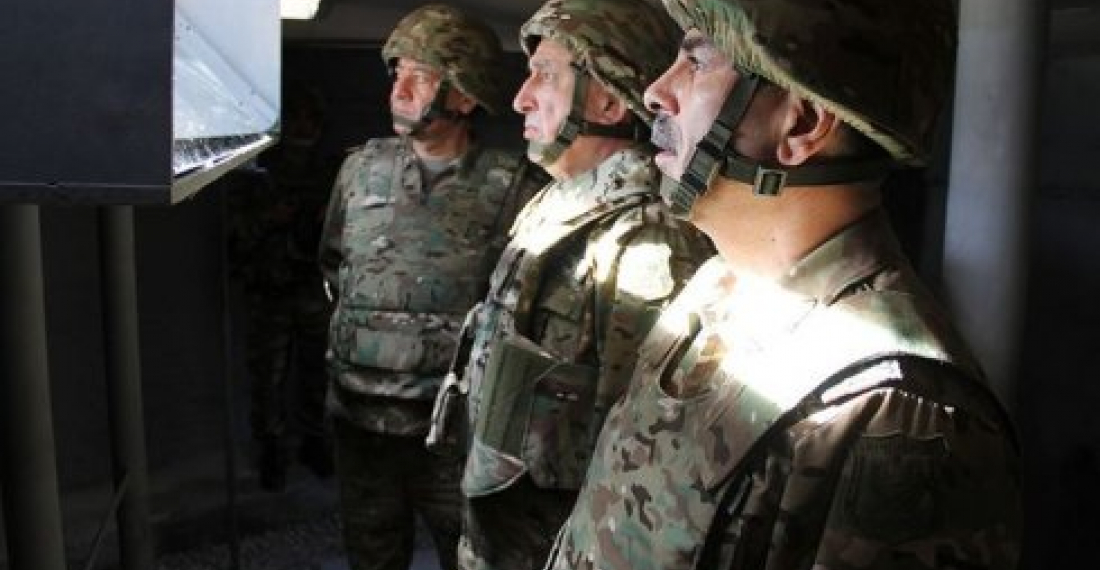Armenia and Azerbaijan continue to eye each other across a heavily fortified border and across the line of contact in the Nagorno-Karabakh conflict zone.
This morning (May 5) it was the turn of the Azerbaijani Defence Minister, Col Zakir Hasanov to visit the frontline. He was accompanied by Col-General Muharram Aliyev, the Military Assistant to president Ilham Aliyev and Head of the Military Affairs Department of the Presidential Administration. On Saturday (2 May), Hasanov told officers of the Azerbaijani General Staff that "the possibility of renewed hostilities has increased dramatically".
read more: Armenia and Azerbaijan emphasise combat readiness here
Also on Saturday, Armenian Defence Minister Davit Tonayan visited troops in the Nagorno-Karabakh conflict zone.
Military experts on both sides say April 2020 saw an increase in the number of incidents on the front line, breaking a pattern of relative calm that had lasted for nearly 18 months.
In the meantime, on Monday (4 May) Armenia reported that one of its soldiers in the Nagorno-Karabakh conflict zone was killed by a landmine. No further information was given. The dead soldier was named as 32 year old contract soldier Taron Rubik Poghosyan.
source: commonspace.eu with agencies
photo: Senior Azerbaijani military officials inspect the frontline on 5 May 2020 (picture courtesy of APA, Baku)







